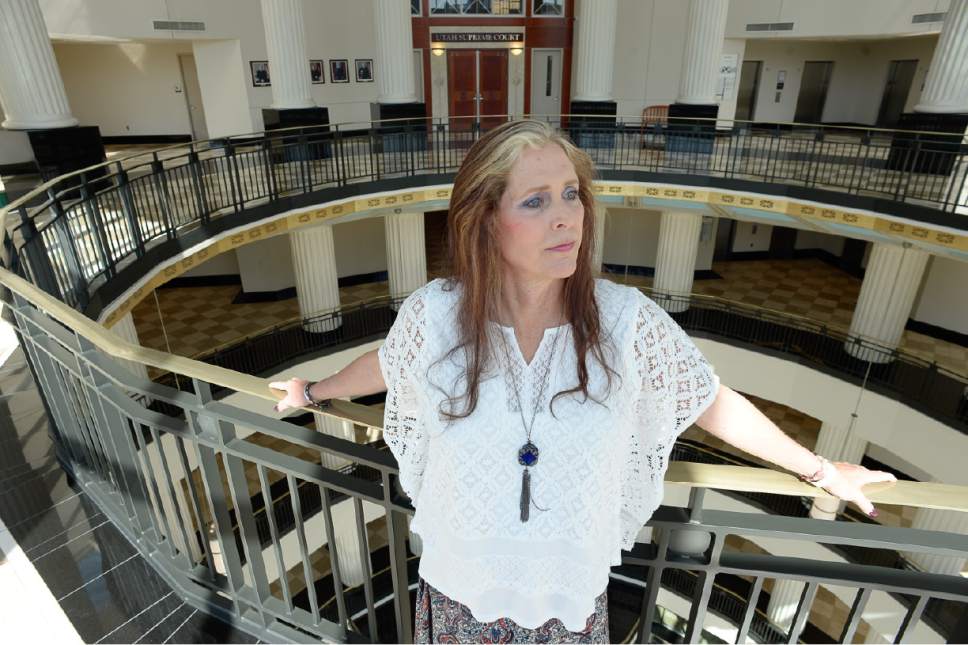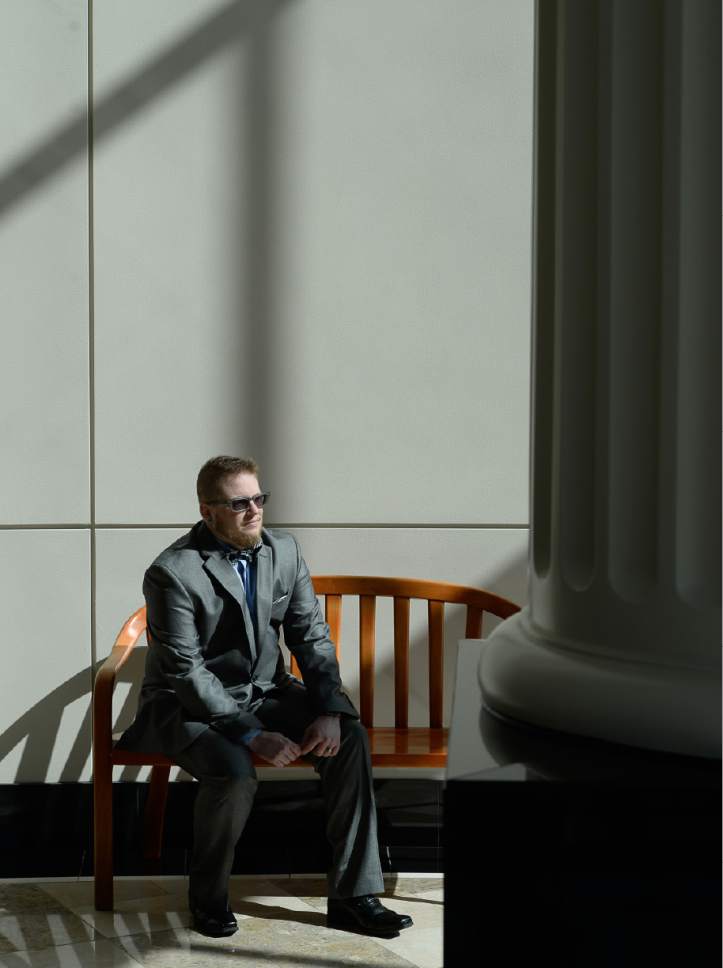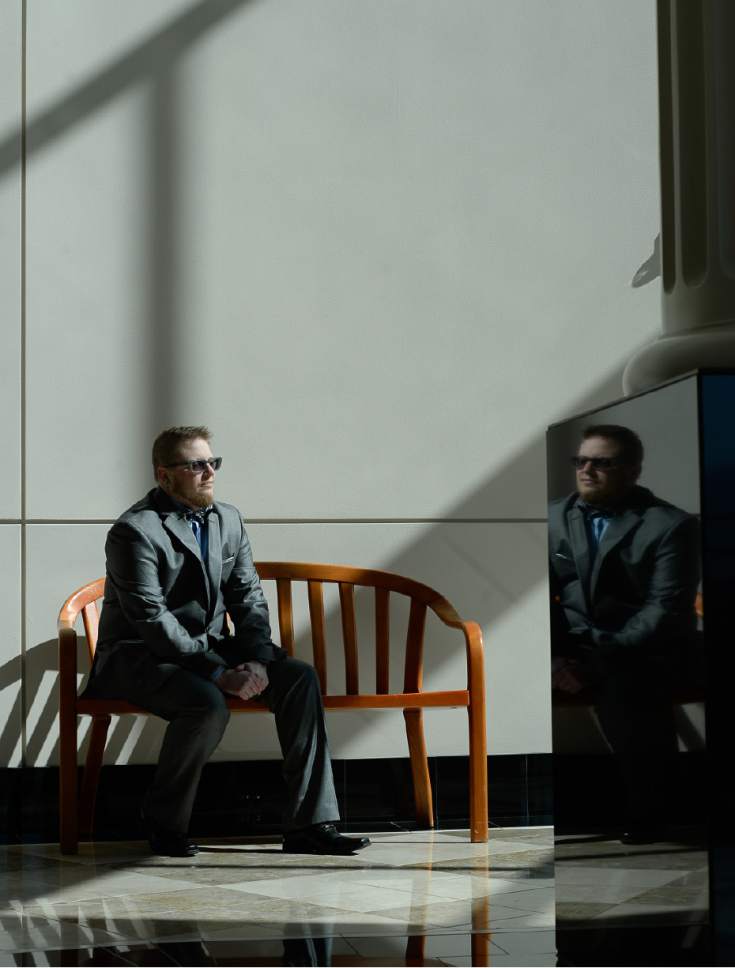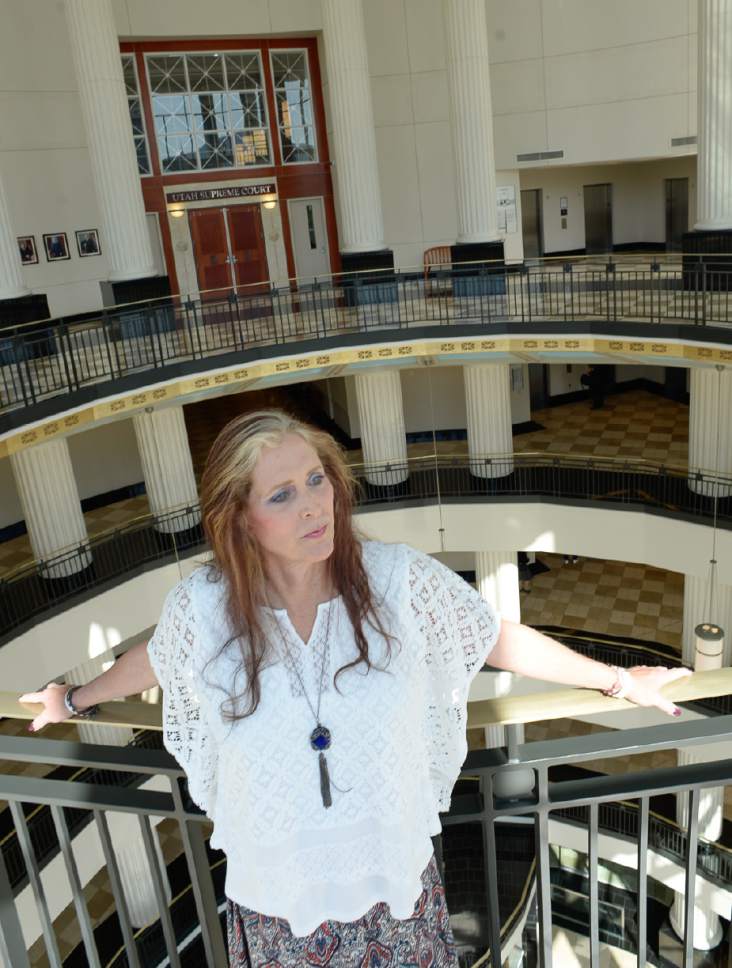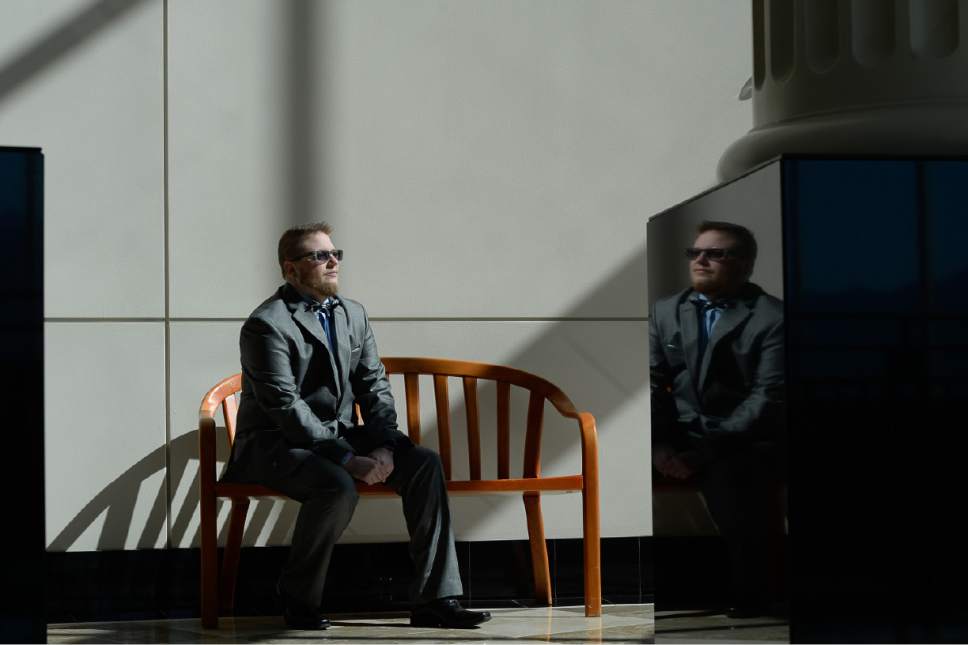This is an archived article that was published on sltrib.com in 2017, and information in the article may be outdated. It is provided only for personal research purposes and may not be reprinted.
Angie Rice
At age 8, Arthur Edward Rice would hide in his parents' Vermont bedroom and hold a long braid of his younger sister's hair up to the back of his head, sometimes tucking it into a baseball cap to hold it in place.
Then he would stare into a mirror.
"What I saw was the person I wished I could be," said Rice, a transgender woman who now is named Angie.
Rice kept that secret through four years at the Air Force Academy and a 20-year career as a pilot, flying rescue helicopters and KC-135 refueler planes over combat zones.
Rice kept it from Sandy Rasband when they married in 1989 and later from their three children as they moved around the globe, finally settling in Morgan.
It was about a year into the marriage that a pregnant Sandy suspected something was off; Rice had shown interest in playing with makeup. A few years later, she asked if her then-husband was gay.
"She hesitated and then said, 'I don't know what it is,' " Sandy recalled Rice saying. "I thought she was just a cross-dresser … so I helped her buy bras and she wore my underwear sometimes."
The couple's marriage — now in its 28th year — has remained strong, they say, despite hard bumps during the seven years Rice experimented with female hormones she bought on the internet that caused dramatic mood swings.
Some spouses might have thrown in the towel, "but I always say, love is bigger than gender," Sandy said.
In fact, it was Sandy who prodded Rice to live publicly as a woman after legislators passed SB296 in 2015, the law to protect LGBTQ individuals from discrimination at work or in housing.
The love and support she's felt, Rice said, has been amazing.
Then came the ruling Rice "didn't see coming," from 2nd District Judge Noel Hyde. The judge praised her dedication to special-needs kids and commended her courage in military service, but denied the legal sex-designation change she's sought.
Now, Rice said, she'd like to sit with Hyde and talk; not to argue the issue, but so he can see the pain he caused.
"It doesn't do me any good to be told how courageous I am, when I am home crying at night," Rice said. "What I need to see is courage in people who are willing to do the right thing."
Sean Childers-Gray
It was on a therapist's couch in 2003 that the former Jenny Sean Pace began to understand why she felt like herself only when performing in drag shows or theater productions as a man.
Still, it was with some surprise that after peeling away a few emotional layers, the then-21-year-old concluded she wasn't lesbian, but rather a transgender man.
The realization planted the seeds of a new identity. Pace is now Sean Childers-Gray, but says he struggled to grasp "the whole encompassing nature of transgenderism. It took me forever to finally say the words."
That took a year; another 11 passed before Childers-Gray would take the medical steps to begin the physical transition to a man.
In between, he lived a split-personality existence: During the week he presented to the world as a woman. On weekends it was male drag. Maybe, he hoped, that would be enough. Amid the tug of war, his marriage to the woman whose last name he shared, tore apart.
In 2012, Childers-Gray found new love with Sara DeSalvo. They soon married and are rearing two daughters. In January 2013, he took the first round of hormone shots.
"I have made my own destiny," he said. "But it's taken me a long time to get there."
Last year, Childers-Gray, an associate dean of graphic arts for an online college, filed a petition in Ogden's 2nd District Court to legally change his name and sex designation, taking the final steps toward his new life.
When Judge Noel Hyde granted the first, but denied the latter, Childers-Gray was not deterred. Long an advocate for equality, he believes this part of the journey calls for him to be the voice for those who aren't yet able to claim their own lives.
Since the ruling, Childers-Gray said he's had a recurring dream about walking into a coffee shop where he runs into Hyde.
"It's a very scary moment when I see him," Childers-Gray said. "But I think I'll just walk up to him and see how it goes."
Hyde greets him, saying, "Well, hello, sir," as if the two are old friends.
And then — every time — the dream ends.
Childers-Gray sees the dreamland encounter as a promise of something better; a time when the transgender community will be recognized and accepted.
"I have hope," he said.


